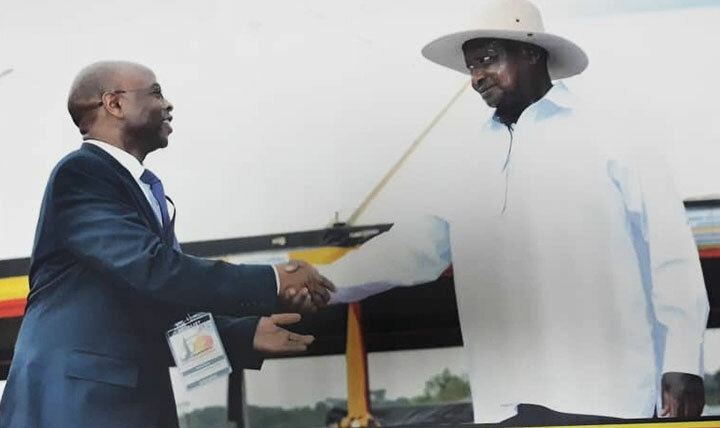African professor to participate in the global economic change conference
The meeting will seek to embrace equality for all and doing away with any form of injustice and discrimination.
ECONOMY | COVID-19
Currently because of the coronavirus pandemic, the world is facing more dilemma economically than it has ever experienced.
Poorer nations and individuals are sinking deeper and deeper into poverty while wealthier ones are rising higher and higher in economic growth.
According to the 2020 report by the Fifth World Speakers of Parliament in Vienna, 20 per cent of the world's population, mostly in high-income countries, consumes 75 per cent of the world's resources.
"A tiny minority holds the same wealth as the poorest 3.6 billion people," the report says.
"This multi-dimensional poverty includes the lack of proper health care, education, nutrition, sanitation and housing, which affects 1.3 billion people."
Sadly, to say half of the world's population earns less than sh20,000 per day.
Following that assessment, world leaders are to have a virtual conference in August in Austria, Viena for a global economic crisis meeting to mitigate the nations' financial predicaments.
In Africa, Ugandan Professor Augustus Nuwagaba an international consultant on economic transformation has been appointed to delve into the issues of hurling developing nations from poverty into wealth.

"I am really honoured to be part of the world leaders who can help propel the world move from poverty to wealth," he says.
Nuwagaba who is passionate on inclusive growth; wealth creation and poverty reduction remarked, "I am a strong supporter of poverty alleviation in the nation starting from house hold incomes, small enterprises, to large economies."
Nuwagaba a graduate of London School of Economics is to appear along side Jeff Bezos, Founder and President, Amazon and Kristalina Georgieva, Managing Director, International Monetary Fund in a panel discourse to help revive the collapsing economies of the world.
The meeting will seek to embrace equality for all and doing away with any form of injustice and discrimination.
"Because of legalized discrimination, women are paid less than men for the same work, have limited access to economic opportunities and financing, and perform most of the unpaid domestic work," the report quips.
"Inequality in the world of work is driven further by weak worker protections, weaker unions, lower effective wages, and overly flexible labour market policies, as well as the rise of the gig economy associated with labour-saving new technologies."
Besides that, the International Labour Organization (ILO) reveals that the vast majority of the world's population, which is excluded from the benefits of new technologies is living in poor and developing countries.
These have not enjoyed the gains of the Fourth Industrial Revolution.
"The internet as a tool can help to democratize information and enable access to opportunities," ILO reveals. "However, the benefits of new technologies often accrue disproportionately to a minority of knowledge workers and capital owners.
If these technologies are not equally accessible in the world, they perpetuate inequalities."
Nuwagaba a prolific economist who has consulted for World Bank, United Nations and European Union says the meeting is to urge parliaments and governments to ensure that the rebuilding of the economy happens in a socially equitable and sustainable way so that inequality is thrashed.
This will ensure delivering well-being and justice for all.
For all those reasons, Gabriela Cuevas Barron, President Inter-Parliamentary Union says forging inclusive and sustainable economies that deliver well-being and justice for all, requires searching for novel solutions and possibly designing new economic model altogether.
She says policy prescriptions intended to address the various imbalances that exist in today's economy need to be framed within a more people-centred economic paradigm.
"There will also be inclusive business models that give workers, consumers and communities a greater voice in production decisions and local environmental management," she states.
More to that, Nuwgaba says there is need to have greater investment in public goods such as education, health care and infrastructure for economies to thrive.
Despite the ravage the pandemic has wrought, Nuwagaba reveals that the meeting has to see that there is proactive support of local production and of small and medium enterprises, and new environmental and well-being as indicators of economic progress.
Nuwagaba is a member of the African Regional Panel of experts on development and a Winner of International Award for Significant Contribution to World Society.
He is an international consultant for the Economic Management Project in Sub-Saharan Africa, covering Ethiopia, Tanzania and Uganda, under the auspices of United Kingdom and World Bank.
He is also a consulting manager at Reev Consult International.